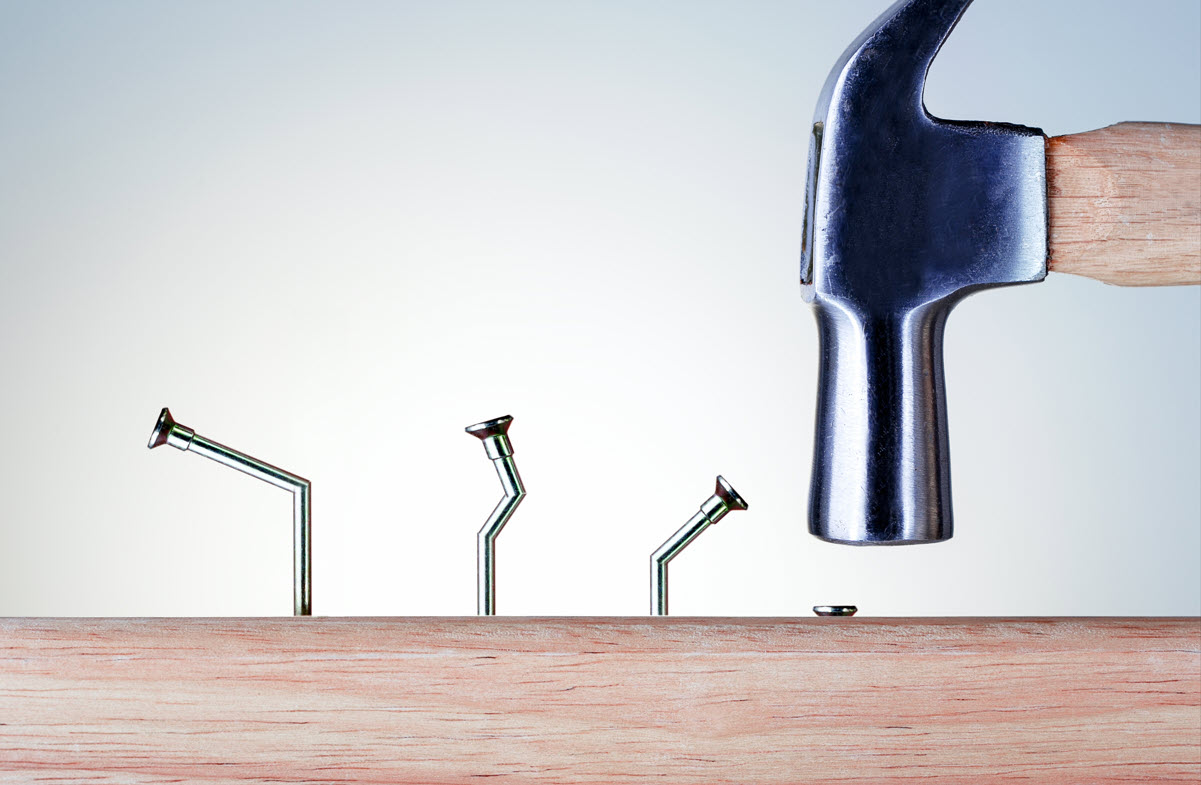FINDING MY FAVORITE FAILURE
- Emotional Intelligence
- by Kim Wheeler
- 09-21-2023

One of the books on my nightstand right now is Tribe of Mentors by Timothy Ferriss. In this collection of “mini-interviews,” Ferriss poses a series of 11 thought-provoking questions to more than 100 successful performers, athletes, writers, and entrepreneurs and compiles some of their answers in a quick-read fashion that lands with impact.
While I’m enjoying the respondents’ answers, what I’ve found most powerful are the questions themselves. A few that resonated for me were:
- How has a failure, or apparent failure, set you up for later success? Do you have a “favorite failure” of yours?
- What is one of the best or most worthwhile investments you’ve ever made? (Could be an investment of money, time, energy, etc.)
- In the last five years, what new belief, behavior, or habit has most improved your life?
As the parent of a teenager, I found the first question particularly compelling. It’s sometimes easy to forget how much struggle and heartache many of us must experience before we arrive at a place in life where we can have a “favorite failure.” It can take years to learn how to stop fearing failure and being consumed by regret at the thought of it and instead recognize how setbacks have led to an outcome even better than we’d originally hoped for.
If I could give my son a gift, it would be the ability to skip the “failure-resistant” phase of life and move straight to Ferriss’s outlook, which is that, while you can’t avoid failure, you can avoid failure without reward.
When we find out the hard way what doesn’t work, it only helps us get closer to the things that do, in part by uncovering our strengths and weaknesses. As Ferriss puts it, “You don’t ‘succeed’ because you have no weaknesses; you succeed because you find your unique strengths and focus on developing habits around them.”
Reflecting on my own experience returning to the workforce after many years of staying at home with my family, I struggled with multiple disappointments as I navigated applications and interviews and several kind but disheartening rejections! “We appreciate your interest, but we’ve decided to go in another direction” and “We’re unable to move forward at this time” and a number of other polite messages seemed to scream failure and no hope of ever overcoming the gap on my resume.
While perhaps not gracefully, I did learn something from each rejection. I took note of questions and comments during interviews and spent hours tweaking my resume to highlight things interviewers seemed interested in. I found people with experience and insight and sought their advice to help prepare for interviews, learning how to emphasize the heavy volunteer work I’d done over the years to keep my skills sharp and relevant.
Within a couple of months, I finally landed a job, and a good one at that! Not the “dream jobs” I’d set my sights on originally, but one that ended up being even better because it brought me to an organization where I found unique opportunities that I wouldn’t have had elsewhere.
Three personal strengths that helped me get through the painful process of reestablishing my career have also played a direct role in the exciting opportunities I’ve experienced since. They aren’t particularly unusual or impressive—strong writing skills, work ethic, and drive to build relationships—but it wasn’t until I tapped into them and started building on them that I finally began finding success.
Those characteristics may sound like fluff on a resume but applying them consistently over time in the right setting with the right people allowed me to set myself apart, show my potential, and establish key connections that ultimately helped open doors for me.
What personal strengths have you built upon to find success? What setbacks helped reveal them to you or, as Ferriss would ask, what’s your favorite failure?


